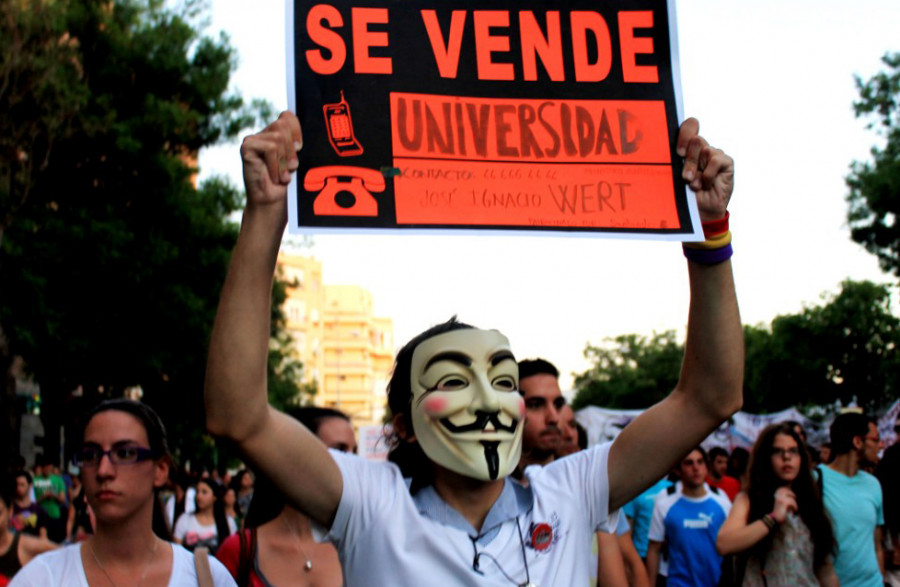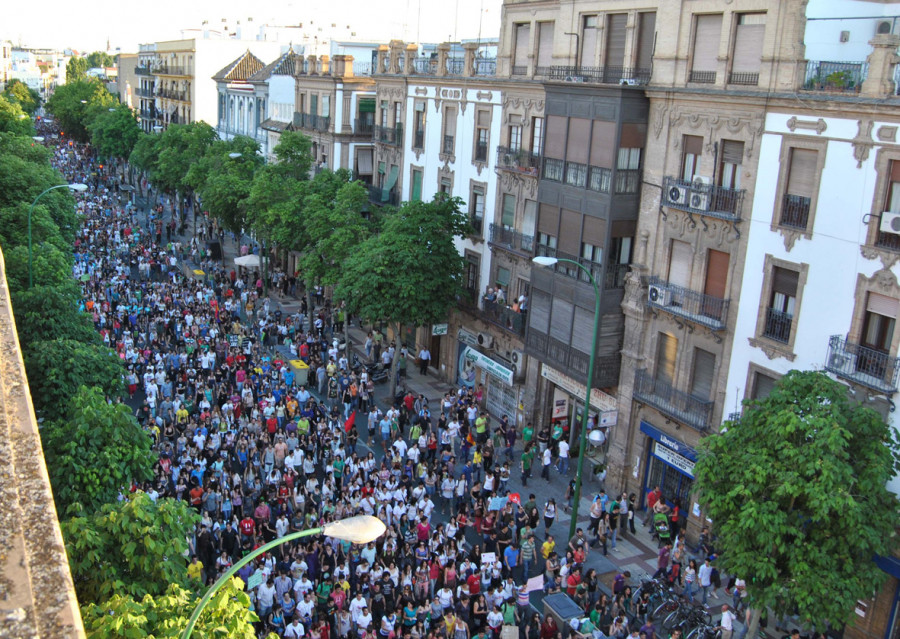From Printemps Érable to Printemps Espagne
Two-Week Strike Held at Spanish Universities
On May 22, while students and opponents of Bill 78 flooded the streets of Montreal, a similar protest was taking place in Spain.
Hundreds of thousands of professors went on a one-day strike to voice their opposition to government cuts in education, which includes allowing universities to raise tuition by 66 per cent, while students throughout Spain marched in solidarity. Students in Seville’s two universities voted for a limited strike.
In the autonomous southern region of Andalusia, students have the right to strike. This, however, is not the case for most of the country.
“We’re feeling very motivated by the strike taking place in Canada,” said Laura Bosch, student at Pablo de Olavide University in Andalusia’s capital, Seville. She and her fellow students are closely watching the situation in Quebec, and also in Chile and Brazil.
Students are protesting the cuts, the reduction in scholarships and the recent decision by the government to limit university hiring powers.
The cuts, totalling over $12 billion, are not limited to education however.
“We want the Minister of Education to take into account our opinions as well as the opinions of the teachers,” said Bosch. According to Bosch, the situation is already tense; earlier in May, university rectors walked out of a meeting with the government.
Bosch expressed concerns regarding the media coverage echoing those of the Quebec strike.
“Some media show us as students who don’t want to have classes,” said Bosch. “[But] we’re working a lot.”
Seville is one of the only places in Spain where students have a guaranteed right to strike. Votes in general assemblies are considered binding by the university. “No event can take place at the university: no evaluation, no test,” said Bosch.
While the strike has ended for both universities, students have already a plan in mind.
“If we don’t get improvements, we’re planning to strike in September,” said Bosch.





_600_375_90_s_c1.jpg)
_600_375_90_s_c1.jpg)
